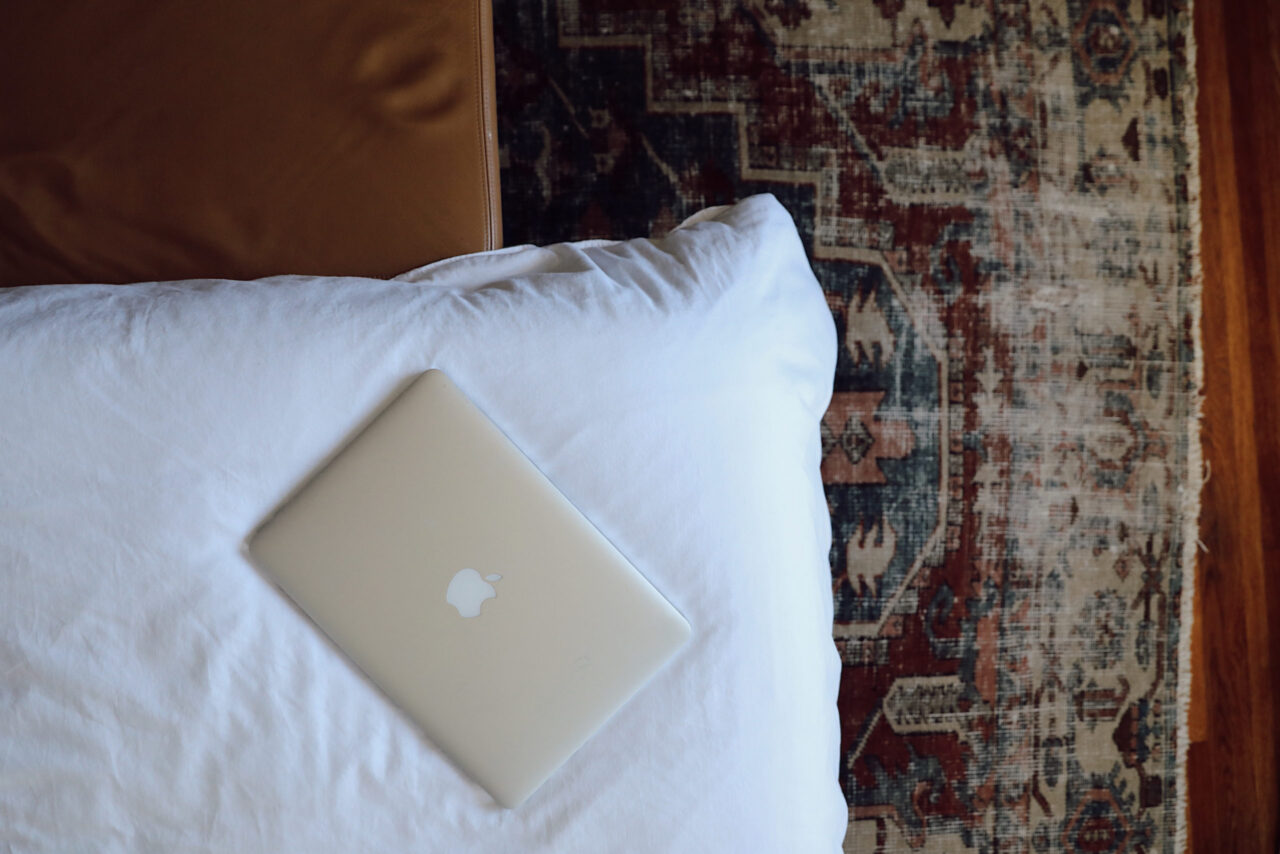Mental Health 3 years ago Why You're Always Tired At Work
It’s 2 p.m. and all I want to do is put on my pajamas and curl up in bed.
For the first few weeks of feeling this way, I chalked it up to Covid-19. The underlying stress and anxiety of a global pandemic are certain to cause some unwanted and unforeseen changes in our mental health. But as someone who has always had a WFH {work from home} job, I have really started to see some major red flags with my productivity and energy levels when it comes to getting my work done.
In many ways the lower production effect has been great for my life. Before my work fatigue I often found myself sitting at the desk for 20-40 hours a week which wasn’t productive either. After all, my job is to create content and share my life, not sit behind the desk all day. But lately I have been feeling so incredibly exhausted the moment I sit behind my desk that it’s resulted in e-mails being saved in a “To Reply” folder that I’ll get to later and an editorial calendar that isn’t flushed out. While I used to plan my content out month’s in advance, I’m not writing a blog post a day or two before it’s “live” date. Again, it’s the not the worst thing ever, but it’s also starting to somewhat bother me.
I am not a lazy person!
After doing a deep dive on the internet, researching the causes of what they call “work fatigue,” I came across a few interesting points that I wanted to share. I know many of you are also working from home and may be feeling similarly. And while some of us {hand raised} are used to WFH life, for a lot of you this lifestyle is still very new. But I wanted to point out that you aren’t just tired at work because work is now at home. And because work fatigue can quickly lead to burnout, it’s important to better understand how and why you may feel this way and learn how to handle it.
Understand Your Productivity Curve
Firstly, it’s important for us to all understand when we can perform work at our best. The beauty of working from home for many of us is that we don’t have a set schedule which can really open up room for improvement. Are you most productive first thing in the morning at 8 a.m. or are you more of a night owl? Before I had a child, I was a huge night owl and would get a big surge of creative energy around 5 p.m. Lately, I can barely keep my head up past 1 p.m. I now aim to get big chunks of my work done before noon and schedule any calls during that time too so I’m alert, focused and ready to rock.
Not Enough Sleep?
It’s a pretty obvious thing to say that if you are feeling fatigued it’s because you aren’t getting enough sleep. But the question to truly ask right now is if you are getting good quality sleep. I go to bed at 11 p.m. every night but I sleep as light as a feather. Even the slightest sound and I jump out of bed like a crazy person. The CDC has declared a lack of sleep a public health epidemic! If you allow yourself one or two nights of logging in some extra Zzz’s, it should make a great improvement on your work fatigue.
You Are Burned Out
Job burnout, or just being “over” your job isn’t really a medical diagnosis. However, many experts believe that other underlying conditions such as physical or emotional exhaustion can lead to feelings of loss of personal identity. Many people who experience symptoms of job burnout don’t believe their jobs are the main cause. Whatever the cause, job burnout can affect your physical and mental health. Consider how to know if you’ve got job burnout and what you can do about it.
What To Do
Work fatigue can lead to poor decision making, lower productivity and even injury. It can have a very real effect on your work and workplace {home!}. A few key take aways on how to handle:
- Consider a shift if your schedule. Pay attention to what time and days you feel most productive. If possible, strive to take two consecutive days off each week.
- Have an honest conversation with yourself and/or your superior about balancing your workload to set realistic expectations. We are in unprecedented times and most employers will be very understanding and flexible.
- Take a look at your workplace atmosphere. Do you have a designated office space? Even if it means working from the kitchen table, be sure to have a designated work space that feels nice and cool with minimal noise and vibrations.
- Do you best to log in some extra sleep. Whether it means turning off Netflix an hour earlier or asking your spouse to take the nightshift with your little ones, it’s extra important to allow your mind, body and soul to get some rest right now.
Please note: I’m not a doctor! Please check with your healthcare professional if you are struggling greatly with sleep deprivation or depression.






0 Comments Join the Conversation